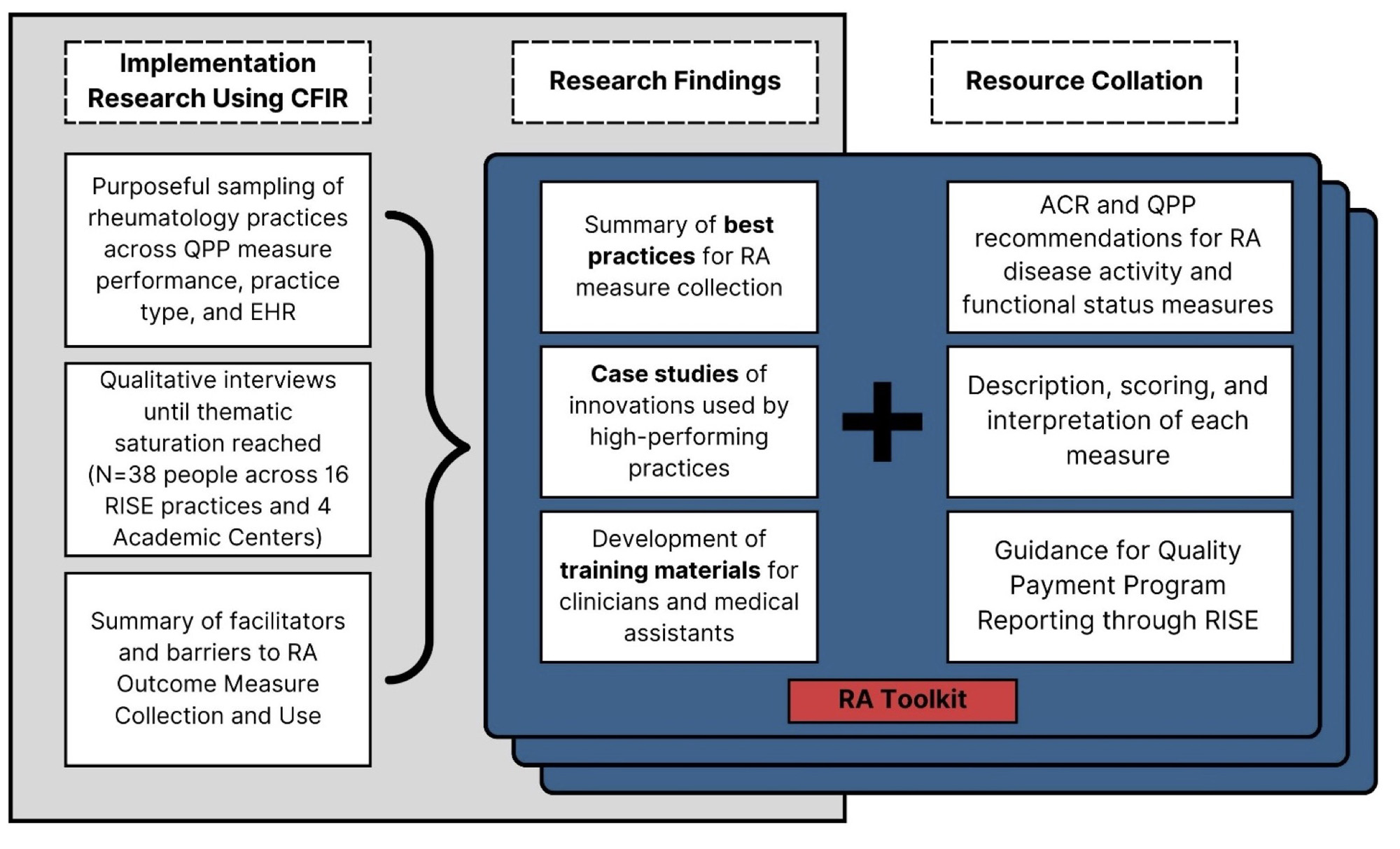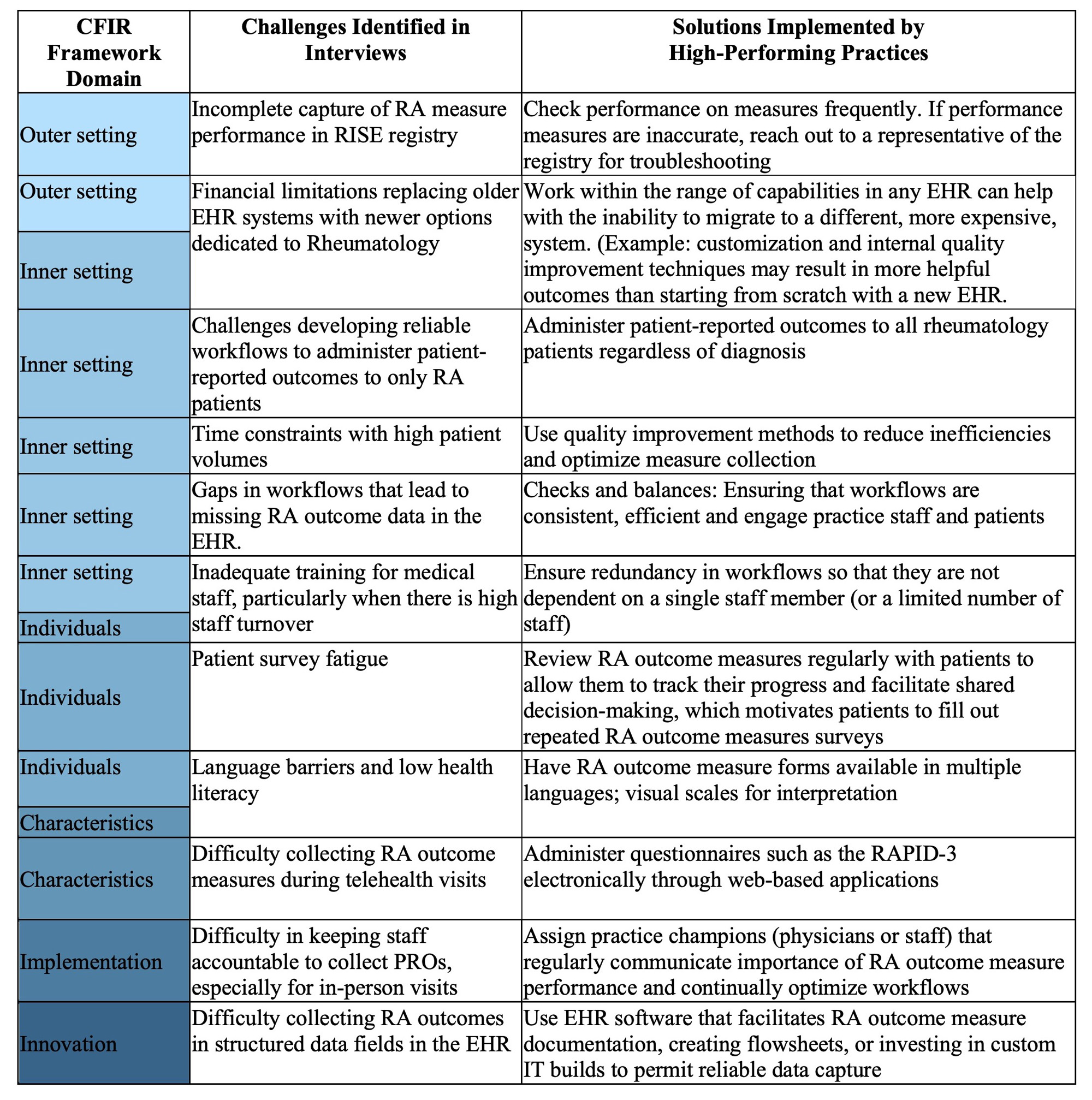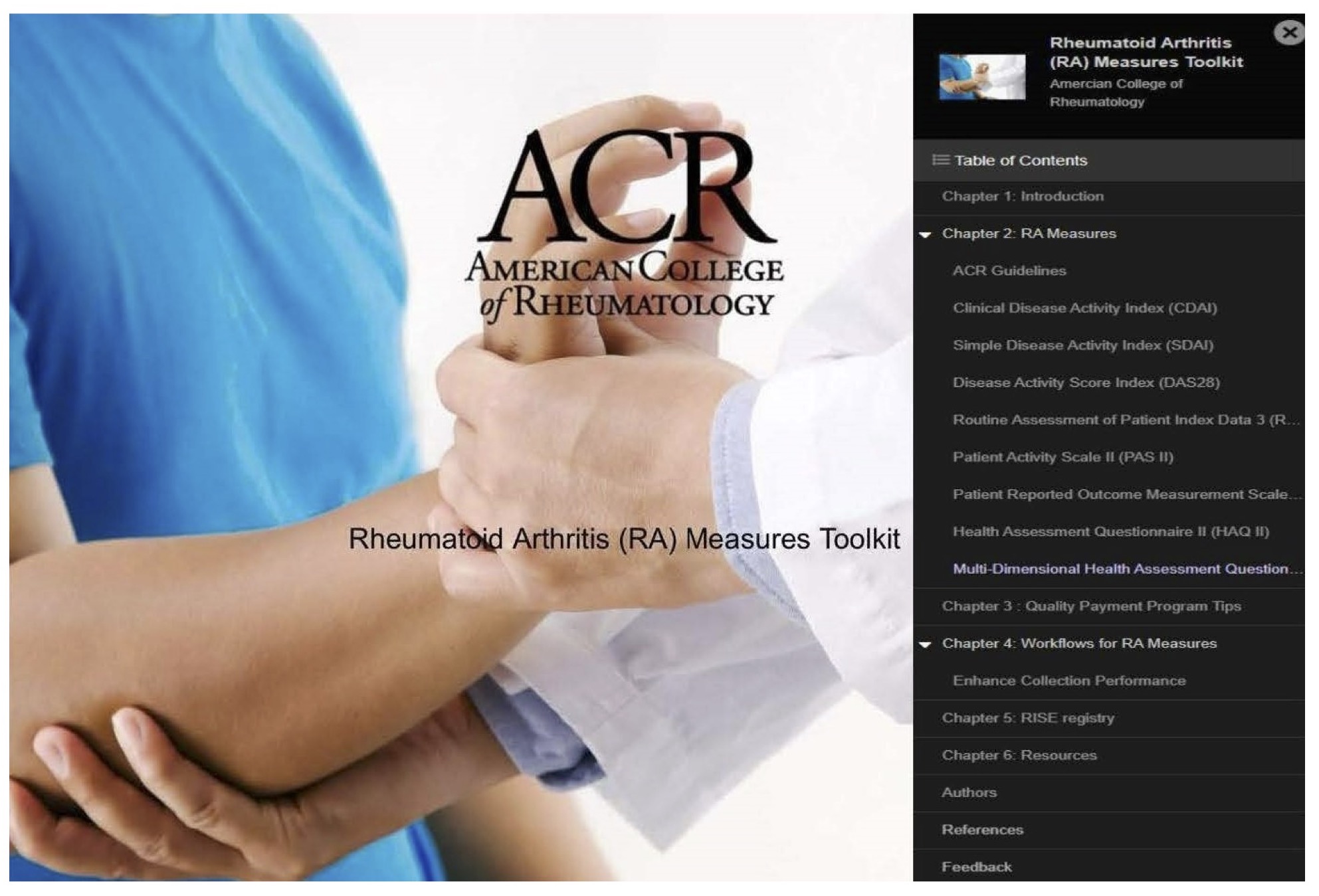Session Information
Date: Tuesday, November 14, 2023
Title: (1895–1912) Measures & Measurement of Healthcare Quality Poster II
Session Type: Poster Session C
Session Time: 9:00AM-11:00AM
Background/Purpose: Despite significant interest in the scale and spread of rheumatoid arthritis (RA) outcome measures to facilitate a patient-centered, treat-to-target approach, use of these measures remains inconsistent among rheumatologists. We used the Consolidated Framework for Implementation Research (CFIR) to guide qualitative interviews with stakeholders about facilitators and barriers to RA outcome measurement in real-world rheumatology care, with the goal of disseminating best practices for implementation via an online toolkit
Methods: Using RISE registry data, we invited 85 practices with high performance on RA disease activity (DA) measures (≥ 50% percentile on the Quality Payment Program (QPP) 177 periodic assessment of DA) and 54 practices with lower performance to participate. Because academic medical centers (AMCs) are under-represented in RISE, 4 AMCs were also invited to participate. Rheumatologists and key staff from each practice participated in virtual interviews. CFIR concepts were used to develop a semi-structured interview guide to understand workflows, facilitators, and barriers to RA outcome measure collection. Interview recordings were transcribed verbatim and analyzed thematically using deductive and inductive techniques to generate themes and subthemes. Collaborating with the ACR staff, we compiled information from these interviews to develop the online RA Toolkit, a comprehensive resource to facilitate RA outcome measurement in clinical practice (Figure 1).
Results: Interviews were conducted with invited practices until thematic saturation was reached (38 interviews across 16 RISE practices and 4 AMC). Participants included 21 rheumatologists, 8 medical assistants, 6 practice managers, 1 nurse practitioner, and 2 information technology specialists. Each interview highlighted unique innovations, resources, best practices, and challenges for collecting RA outcome measures (select findings summarized in Table 1). Results of the qualitative interviews, ACR guidelines regarding RA outcome measures, and other evidence-based resources were compiled in the RA Toolkit (available at RAToolkit.kotobee.com). The Toolkit is a multimedia online resource for RA outcome measure implementation geared toward use by clinicians and staff. Sections include text, videos, and downloadable forms that aid in understanding and using RA outcome measures in clinical practice, recommendations and best practices identified from high performers across diverse practice settings and EHRs, training resources for staff, and validated translations of available RA measures in Spanish and Chinese (Figure 2).
Conclusion: Qualitative interviews conducted with rheumatology teams laid the groundwork to develop a best practices implementation toolkit to disseminate innovations in RA measures collection. The ACR RA Toolkit is the first comprehensive, evidence-based, open-source resource available for rheumatologists and healthcare teams to guide effective implementation, collection, and use of RA outcome measures that promote quality and value-based patient-centered care.
To cite this abstract in AMA style:
Nasrallah C, Jacobsohn L, Schmajuk G, Kersey E, Young C, Young C, Martin J, Barber L, Barton J, Bajaj P, Bartels C, Ferguson S, Wahl E, DeQuattro K, Katz P, Danila M, Subash M, Downey C, Zell J, Reiter K, Weinstein E, Yazdany J. Development of the American College of Rheumatology Toolkit for Implementation of Rheumatoid Arthritis Outcome Measures in Clinical Practice [abstract]. Arthritis Rheumatol. 2023; 75 (suppl 9). https://acrabstracts.org/abstract/development-of-the-american-college-of-rheumatology-toolkit-for-implementation-of-rheumatoid-arthritis-outcome-measures-in-clinical-practice/. Accessed .« Back to ACR Convergence 2023
ACR Meeting Abstracts - https://acrabstracts.org/abstract/development-of-the-american-college-of-rheumatology-toolkit-for-implementation-of-rheumatoid-arthritis-outcome-measures-in-clinical-practice/



